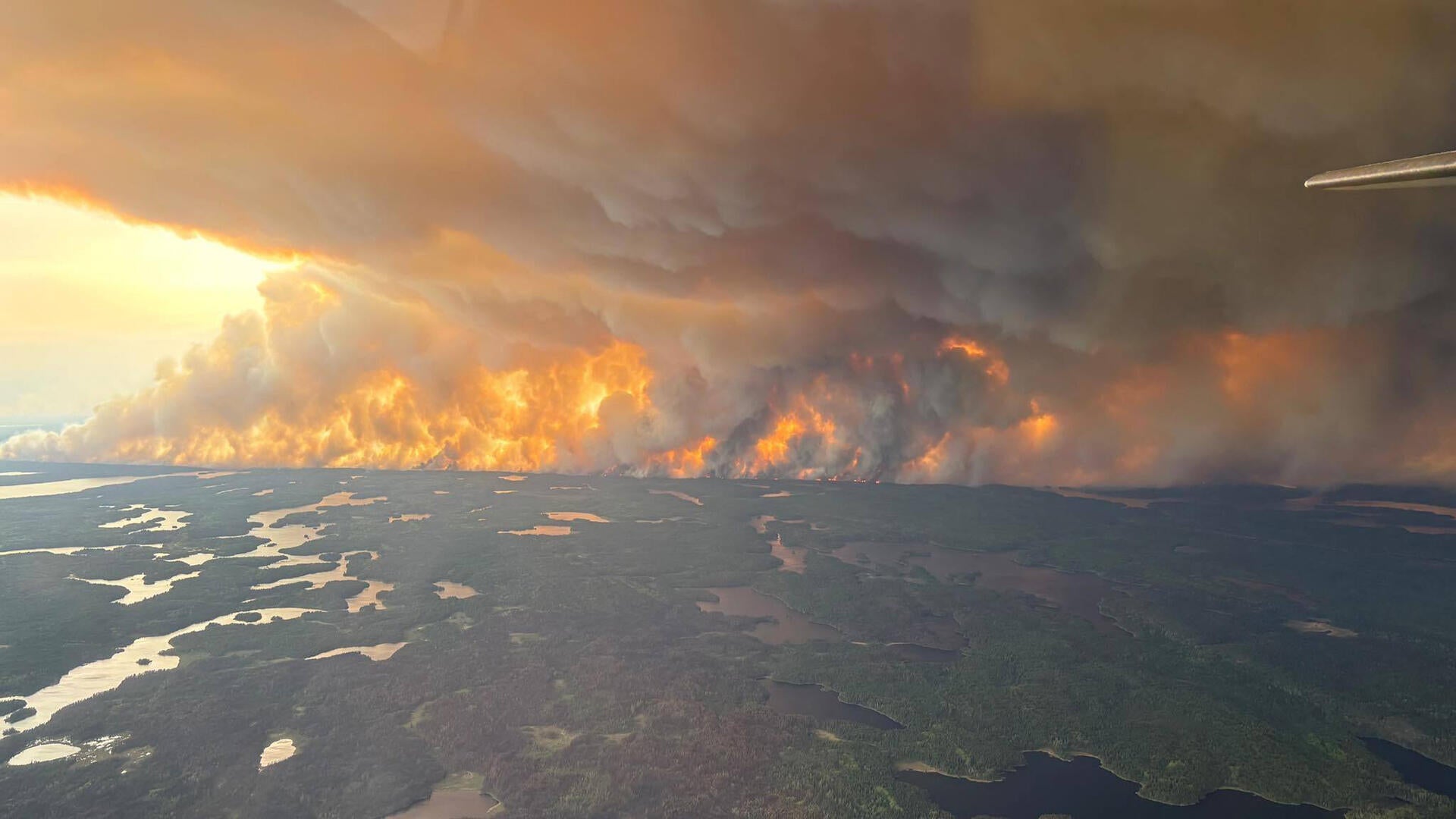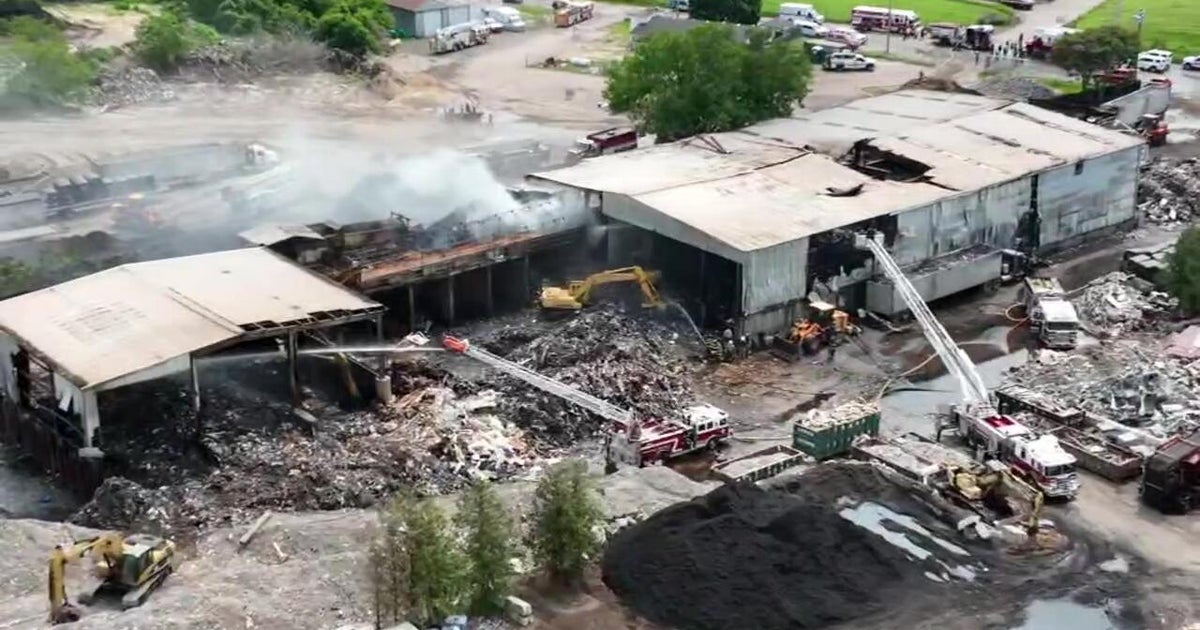Canada wildfires spread, forcing more than 33,000 to evacuate as smoke impacts U.S. and reaches Europe
Toronto — At least 33,400 people have been forced to evacuate their homes in three Canadian provinces due to active wildfires that are sending smoke drifting across the border into northern U.S. states and all the way across the Atlantic to Europe. As of Wednesday two deaths were blamed on the blazes.
Officials have declared a state of emergency in Manitoba and Saskatchewan, where crews and military forces were battling this week to try to contain dozens of out-of-control fires.
Some 17,000 people got evacuation orders in Manitoba alone, many of them seeking shelter in Winnipeg, while others were put up in hotels in Niagara Falls, in neighboring Ontario province.
"This is the largest evacuation Manitoba will have seen in most people's living memory," Manitoba Premier Wab Kinew said during a news conference on May 29.
All of Manitoba was under an "extreme fire danger" warning on Tuesday, according to the regional government. The Canadian armed forces were assisting with the evacuation of two separate Indigenous communities in the province.
Kinwew confirmed that two people in the small town of Lac du Bonnet were killed, representing the first civilian casualties from wildfires in Manitoba's recent history, according to regional media reports.
In Saskatchewan, about 15,000 people had been evacuated by Tuesday, according to the province's top public official.
"We didn't have a very good day yesterday, with the weather the way it was, where the fires are and just how aggressive they are as they bear down on communities," Saskatchewan premier Scott Moe said Tuesday, according to The Canadian Press news agency. "We're probably approaching in the neighborhood of 15,000 people that have been evacuated across the province and being supported in communities throughout Saskatchewan, and more families are leaving their homes as we speak."
In Alberta, more than 1,400 people were ordered to evacuate to shelters provided in hotels and other temporary accommodations. The province had 56 active wildfires as of Tuesday, 27 of them deemed out of control.
Conditions did improve slightly, with cooler temperatures and higher humidity helping firefighters in Alberta, according to an update shared Tuesday by provincial officials.
As of Tuesday, there were 21 active wildfires in Saskatchewan, according to the province's , including eight deemed completely uncontained.
In Manitoba, there were 27 active fires on Tuesday, nine of them considered out of control, which is above the average for this time of year.
According to the province's , most of those fires were caused by human activity. As a precaution, Manitoba parks were advised to prepare for potential evacuations.
Canada's wildfire season typically begins in April and lasts until late September, with most activity occurring in June and July. In recent years, however, it has started as early as February, due to warmer weather and drier conditions.
Smoke from the wildfires has been impacting air quality in several U.S. states, including Michigan, Wisconsin and Minnesota. The smoke had reached parts of western Europe, too, according to climate monitoring services.
"Smoke originating from the wildfires in the Canadian provinces of Manitoba and Saskatchewan has been transported across the Atlantic, reaching Europe during the last few days with forecasts showing further smoke transport this week," according to a published Tuesday by the European Copernicus Atmosphere Monitoring Service (CAMS).
Firefighters, emergency crews and aircraft from other provinces, and from the U.S., were on their way to help fight the wildfires in Canada.
"I've never seen anything like it, in the way of the ferocity of the fires, how quickly they're moving, how they're changing and encroaching on communities," Moe, the Saskatchewan premier whose home is lives close to some of the active fires, said according to national broadcaster CBC.
While Alberta was seeing a slightly improved picture, in Manitoba and Saskatchewan, the forecast for the coming days was for strong winds and no precipitation, meaning little expected relief for the teams battling the fires.
Canada faced its worst wildfire season on record in 2023. Eight firefighters were killed and a record 18 million acres scorched, making the blazes the biggest single emitter of carbon in the world that year.






